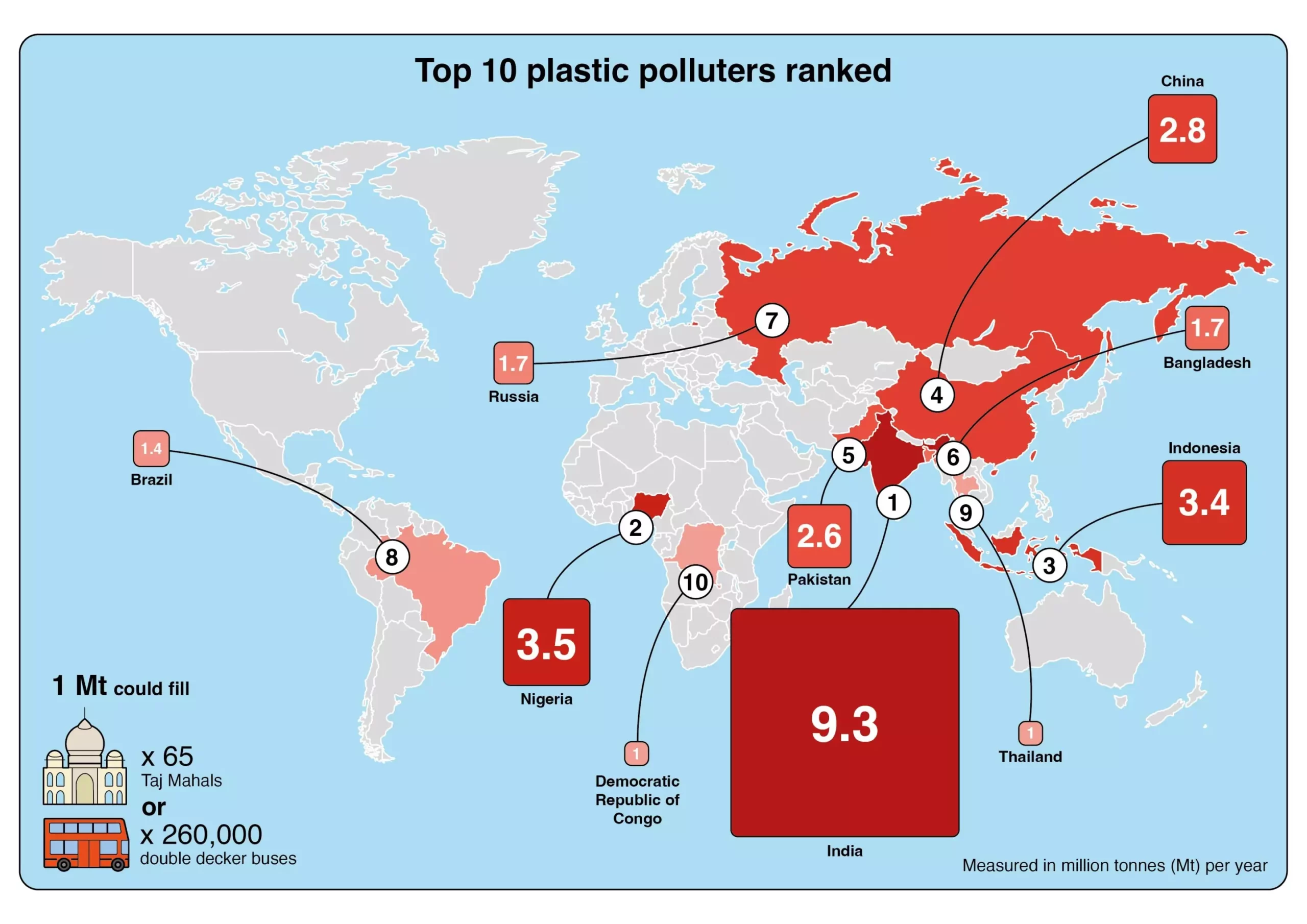The challenge of plastic waste management represents one of the most pressing environmental issues of our time. A groundbreaking study from the University of Leeds has quantified the alarming scope of plastic pollution, revealing that a staggering 52 million metric tons of plastic entered the environment in 2020 alone. Using advanced AI technology, researchers modeled waste management across over 50,000 municipalities worldwide, uncovering the extensive ramifications of uncollected rubbish and rampant open burning of plastic. These findings highlight the urgent need for comprehensive waste management solutions globally.
One of the most shocking revelations from this study is that over 1.2 billion people—approximately 15% of the world’s population—live without access to waste collection services. This lack of infrastructure forces communities into a cycle of self-management where they often resort to dumping their waste in the environment or burning it in open fires. Dr. Josh Cottom, one of the study’s lead researchers, emphasizes that uncollected waste is the most significant source of plastic pollution, particularly affecting the world’s poorest communities, who have limited resources to combat this issue.
The ramifications of uncollected waste extend beyond environmental degradation; they pose substantial health risks. Burning plastic releases harmful chemicals into the air, which can contribute to neurodevelopmental disorders, reproductive issues, and birth defects. This environment of risk is exacerbated by the fact that many developing nations, especially in sub-Saharan Africa and Southeast Asia, are projected to see substantial population growth, further straining their underdeveloped waste management systems.
Historically, much of the discourse around plastic pollution has centered on countries like China and the United States. However, the Leeds study shifts the narrative, revealing India as the biggest contributor to global plastic pollution, producing around 9.3 million metric tons of waste in 2020. This figure starkly contrasts the previous assumption that China topped the list. The new data illustrates how improvements in collection and processing in certain nations can dramatically alter their contribution to plastic waste.
Other countries that emerged as significant contributors include Nigeria and Indonesia, further illuminating the systemic issues that these nations face in managing their waste. China’s reduction in pollution levels reflects policy changes and advancements in waste management strategies, which other countries can strive to implement.
The discrepancy between plastic waste generation in the Global North versus the Global South is pronounced. While the Global North exhibits high consumption of plastic, waste management systems there tend to function effectively, minimizing environmental impacts through systematic collection and recycling efforts. In contrast, the Global South grapples with low collection rates, leading to significant per capita pollution levels.
For example, Sub-Saharan Africa, despite exhibiting overall low plastic pollution levels, shows alarming per capita figures. On average, individuals in this region produce 12 kilograms of plastic pollution each year, equivalent to over 400 plastic bottles. This stark contrast serves as a warning, indicating that without significant improvements in waste management systems, the Global South may soon become a hotspot for plastic pollution.
The findings of this study point to an urgent need for action on a global scale. Researchers advocate for a legally binding global ‘Plastics Treaty,’ serving as a framework for addressing the sources of plastic pollution. Such measures would not only promote effective waste management but also foster circular economy principles, bolstering resource recovery and sustainable practices.
Co-author Ed Cook expressed the importance of high-quality data for policymakers tackling this crisis. The study provides a vital baseline comparable to climate change emission inventories, enabling informed decision-making and strategic planning.
As the global community grapples with the implications of plastic waste, the need for comprehensive solutions is paramount. The revelations from the University of Leeds’ study shed light on the multifaceted nature of plastic pollution, emphasizing the role of uncollected waste and open burning. Improving waste management systems must become a fundamental priority, particularly in developing regions where the impacts are most severe.
Furthermore, as this research demonstrates, collaboration at both local and international levels is critical to developing and enforcing policies that will combat this escalating environmental disaster. Only through concerted effort and innovative approaches can we hope to mitigate the profound consequences of plastic pollution, securing a healthier planet for future generations.


Leave a Reply